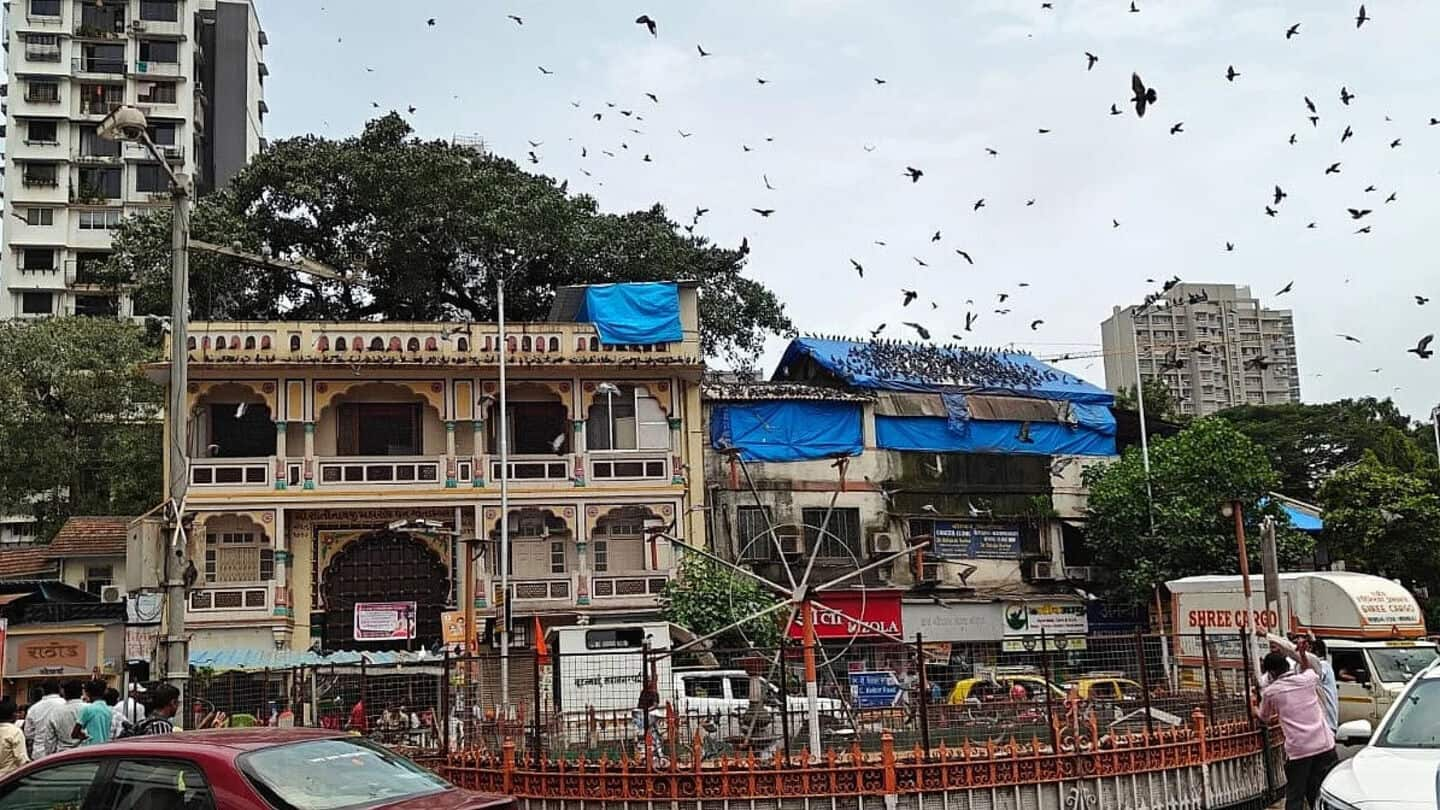
'Kabootar khanas' in Mumbai to be shut down; know why
What's the story
The Maharashtra government has ordered the immediate closure of all 51 "kabootar khanas" (pigeon feeding spots) in Mumbai. The decision was taken after a significant debate in the Maharashtra Legislative Council over health risks posed by pigeon droppings and feathers. Shiv Sena (UBT) MLC Manisha Kayande raised concerns about these feeding spots, calling them a public health threat, referring to a study in the Indian Journal of Allergy, Asthma and Immunology linking pigeon droppings to serious lung diseases.
Health concerns
Link between pigeon droppings and lung diseases
Backing the plan, BJP MLC Chitra Wagh said her aunt died due to respiratory illness from pigeon droppings. Responding on behalf of Deputy Chief Minister Eknath Shinde, Urban Development Minister Uday Samant said there are 51 kabootar khanas in the city and that the civic body will be asked to start an awareness drive against kabootar khanas within a month.
Action taken
What the government has planned
Samant said directions will be issued to the Brihanmumbai Municipal Corporation (BMC) to immediately start the process of shutting kabootar khanas. Unauthorized feeding zones in Santacruz East and Daulat Nagar have already been dismantled by BMC, and traffic islands and Miyawaki gardens have been created at these locations. He said the iconic Dadar kabootar khan was shut for two days but reopened due to public outcry.
Health risks
Why pigeons are not harmless urban wildlife
Pigeons are often viewed as harmless urban wildlife, but they can carry zoonotic diseases such as histoplasmosis, cryptococcosis, psittacosis, salmonellosis, and allergic alveolitis. These diseases can have severe respiratory effects on vulnerable populations like children and the elderly. Pigeon-associated hypersensitivity pneumonia is also increasing in places such as Delhi, Bengaluru, and Pune. People with a pre-existing lung problem are 60-65% more likely to get the disease.
Prevention tips
Civic experts recommend measures to control pigeon population
Beyond health risks, pigeon droppings can corrode metal surfaces and damage buildings. Accumulated droppings also create slipping hazards on walkways. Civic health experts recommend sealing openings to block nesting, using spikes or nets to deter birds, and using reflective materials to repel them. Cleaning droppings safely with gloves and disinfectant is also advised.